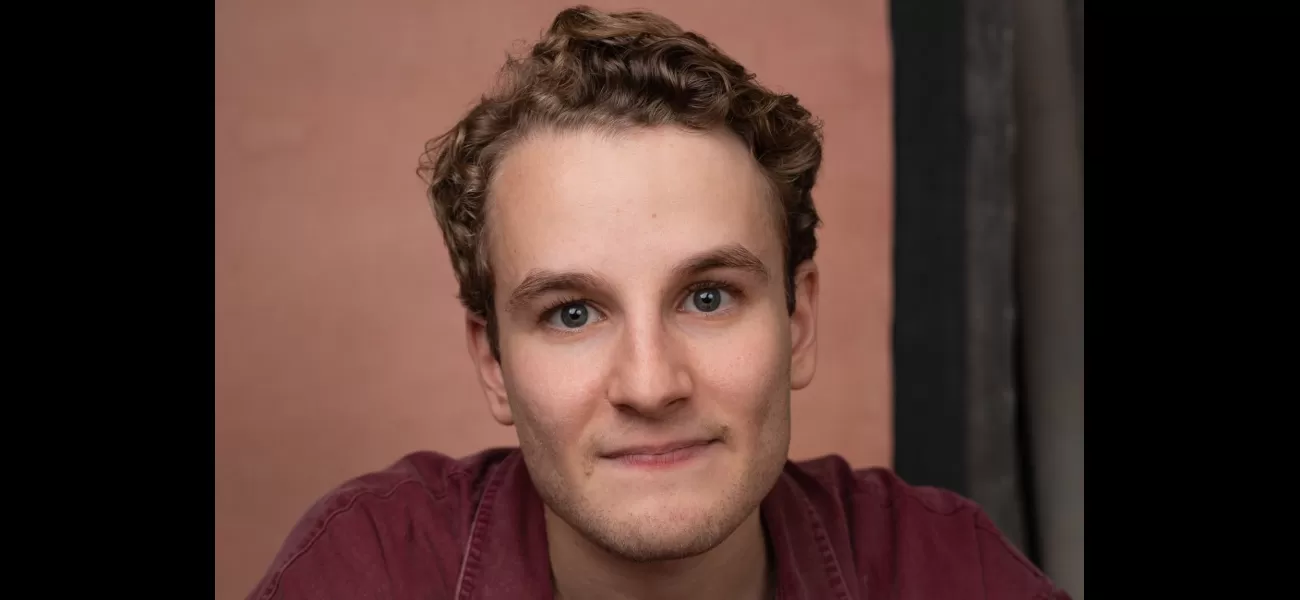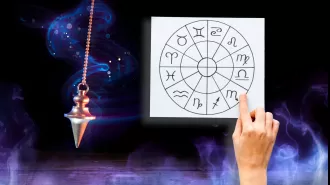I wanted to contribute to peace by enlisting in the Israeli army, but it didn't have the intended effect.
After almost a year of working, I quit.
August 19th 2024.

When I was 19, I was finishing up my training in the Negev desert in southern Israel as part of my national service in the Israeli Defence Forces. It was on Holocaust Memorial Day that I found myself standing in uniform, attending a ceremony and reflecting on my family's history. As a Jewish-Israeli, I felt a sense of pride in being part of a country that we now call home after the horrific events that occurred in Poland during the Holocaust.
But as the ceremony came to an end, my thoughts shifted to the reality of the conflict and occupation that I was a part of by default of my conscription. Despite feeling grateful for our safe homeland, my strongest feeling was that I couldn't continue to be a part of this cycle of violence.
This realization came before the recent escalation of the Israel-Hamas war, but violence has been a part of our history for a long time. In fact, conscription to the IDF is considered a normal part of growing up in Israel. I was conscripted at 18, like everyone else, regardless of gender.
People's feelings towards their service can vary greatly. I remember feeling a mix of excitement and purpose, but also deep dread. I didn't want to be involved in any war, but there is a strong belief in Israel that everyone must "share the burden" of conscription. There is also a real fear of refusing, as it can result in a prison sentence.
I had a friend who declared himself a pacifist in order to appeal for an exemption from service. However, he was met with a long and arduous bureaucratic process, led by the state, and had to hire a lawyer to help with his case. Refusing to serve can also lead to hostility from society, which made me anxious about the impact it could have on my future.
At 18, I was also quite naive and optimistic. I convinced myself that I could make a positive change from within the army, that maybe it takes peace-pursuing people to be brought into the army in order to create peace. But I was wrong.
My time in the army consisted of basic training for a month, where I learned rifle skills, first aid, and other basic army skills. I then went on to train in a different base for role-specific skills. I was part of an elite unit that focused on intelligence gathering, which many people feel proud to serve in as it is seen as defending rather than being offensive.
I was not involved in combat, but it was not the daily tasks that made me realize I could not continue in the army. It was the constant exposure to the bigger picture and the realization of how much control Israel has over the basic freedoms of other people.
Israel's history is one of constant wars and bloodshed, and it's easy to understand the need for an army to protect our country. But after 11 months in the IDF, I began to see how the government was using the army to further their own political agenda. The lack of effort towards a peace deal with the Palestinian people meant that the IDF was also maintaining the occupation in Gaza.
Hamas is a terrorist organization, committed to the liberation of the Palestinian people. However, thousands of innocent civilians are caught in the middle of this never-ending conflict between forces that care little for the loss of life needed to achieve their political goals.
The current and recent Israeli governments have shown little interest in peace or acknowledging the Palestinian people's right to a national home. This is not a story about patriots and rebels, but about people like me who simply want to live peacefully in an impossible and violent reality, a theme that unfortunately is global.
After 11 months of service, I was able to leave the army. It was a long process that involved meetings with a military psychologist, and I was eventually released on medical grounds. It wasn't until I moved to the UK to study as an actor that I realized my experiences in the army could be brought to the stage.
I had kept a diary during my service, and I wrote meditations to try and process my experiences. This year, those entries formed the basis of my original show, Rebels and Patriots, which is currently being staged at the Edinburgh Fringe Festival.
The play is not about patriots or rebels, but about people who are neither. It is about young men like me who want to live peacefully in a violent reality, a theme that is unfortunately not unique to Israel. I co-created the play with Palestinian theatre maker Tarik Badwan, and it offers a perspective on a complicated reality that is often only seen through the lens of news headlines.
I hope that my play will bring attention to the problems surrounding national service in Israel and the need for a change in the country's militant policies. I believe that if we start working towards understanding that war is not the answer, national service can be a way to benefit society rather than perpetuating violence.
If you are exempt from military service in Israel, you have the option to volunteer with organizations in the social sector, schools, care homes, hospitals, and other disadvantaged groups. It's a way to give back to the community and make a positive impact.
Israel is my national home, but it's clear to me that Palestine should also have an internationally recognized national home for the Palestinian people. We should be asking how we can exist together, and this question is now more urgent than ever.
My hope is that through my play and my experiences, I can bring attention to the need for change and a resolution to the ongoing conflict.
But as the ceremony came to an end, my thoughts shifted to the reality of the conflict and occupation that I was a part of by default of my conscription. Despite feeling grateful for our safe homeland, my strongest feeling was that I couldn't continue to be a part of this cycle of violence.
This realization came before the recent escalation of the Israel-Hamas war, but violence has been a part of our history for a long time. In fact, conscription to the IDF is considered a normal part of growing up in Israel. I was conscripted at 18, like everyone else, regardless of gender.
People's feelings towards their service can vary greatly. I remember feeling a mix of excitement and purpose, but also deep dread. I didn't want to be involved in any war, but there is a strong belief in Israel that everyone must "share the burden" of conscription. There is also a real fear of refusing, as it can result in a prison sentence.
I had a friend who declared himself a pacifist in order to appeal for an exemption from service. However, he was met with a long and arduous bureaucratic process, led by the state, and had to hire a lawyer to help with his case. Refusing to serve can also lead to hostility from society, which made me anxious about the impact it could have on my future.
At 18, I was also quite naive and optimistic. I convinced myself that I could make a positive change from within the army, that maybe it takes peace-pursuing people to be brought into the army in order to create peace. But I was wrong.
My time in the army consisted of basic training for a month, where I learned rifle skills, first aid, and other basic army skills. I then went on to train in a different base for role-specific skills. I was part of an elite unit that focused on intelligence gathering, which many people feel proud to serve in as it is seen as defending rather than being offensive.
I was not involved in combat, but it was not the daily tasks that made me realize I could not continue in the army. It was the constant exposure to the bigger picture and the realization of how much control Israel has over the basic freedoms of other people.
Israel's history is one of constant wars and bloodshed, and it's easy to understand the need for an army to protect our country. But after 11 months in the IDF, I began to see how the government was using the army to further their own political agenda. The lack of effort towards a peace deal with the Palestinian people meant that the IDF was also maintaining the occupation in Gaza.
Hamas is a terrorist organization, committed to the liberation of the Palestinian people. However, thousands of innocent civilians are caught in the middle of this never-ending conflict between forces that care little for the loss of life needed to achieve their political goals.
The current and recent Israeli governments have shown little interest in peace or acknowledging the Palestinian people's right to a national home. This is not a story about patriots and rebels, but about people like me who simply want to live peacefully in an impossible and violent reality, a theme that unfortunately is global.
After 11 months of service, I was able to leave the army. It was a long process that involved meetings with a military psychologist, and I was eventually released on medical grounds. It wasn't until I moved to the UK to study as an actor that I realized my experiences in the army could be brought to the stage.
I had kept a diary during my service, and I wrote meditations to try and process my experiences. This year, those entries formed the basis of my original show, Rebels and Patriots, which is currently being staged at the Edinburgh Fringe Festival.
The play is not about patriots or rebels, but about people who are neither. It is about young men like me who want to live peacefully in a violent reality, a theme that is unfortunately not unique to Israel. I co-created the play with Palestinian theatre maker Tarik Badwan, and it offers a perspective on a complicated reality that is often only seen through the lens of news headlines.
I hope that my play will bring attention to the problems surrounding national service in Israel and the need for a change in the country's militant policies. I believe that if we start working towards understanding that war is not the answer, national service can be a way to benefit society rather than perpetuating violence.
If you are exempt from military service in Israel, you have the option to volunteer with organizations in the social sector, schools, care homes, hospitals, and other disadvantaged groups. It's a way to give back to the community and make a positive impact.
Israel is my national home, but it's clear to me that Palestine should also have an internationally recognized national home for the Palestinian people. We should be asking how we can exist together, and this question is now more urgent than ever.
My hope is that through my play and my experiences, I can bring attention to the need for change and a resolution to the ongoing conflict.
[This article has been trending online recently and has been generated with AI. Your feed is customized.]
[Generative AI is experimental.]
0
0
Submit Comment





